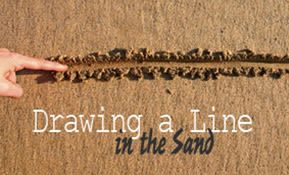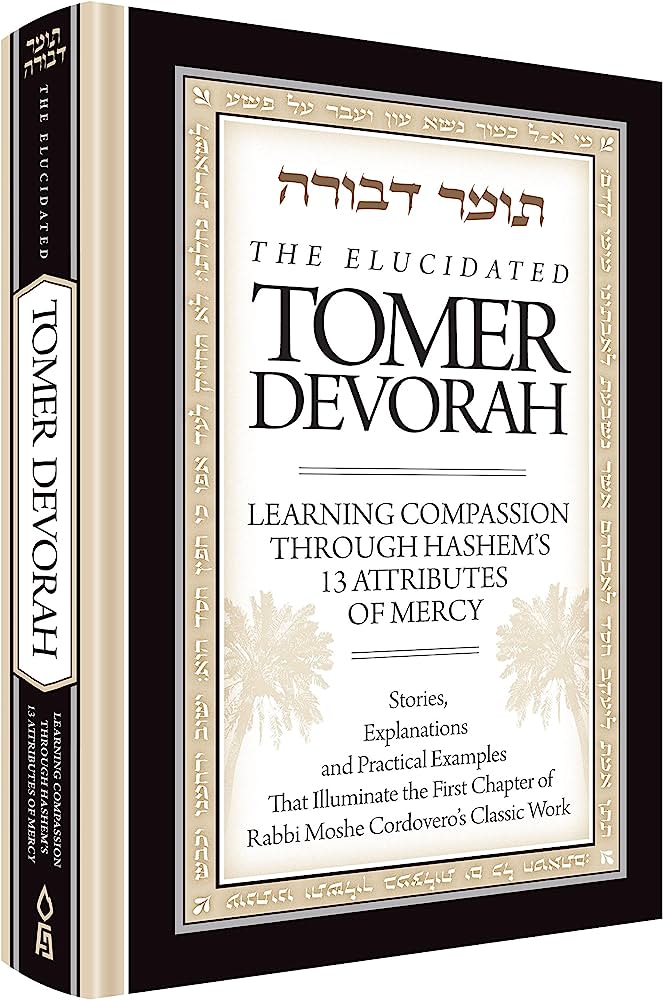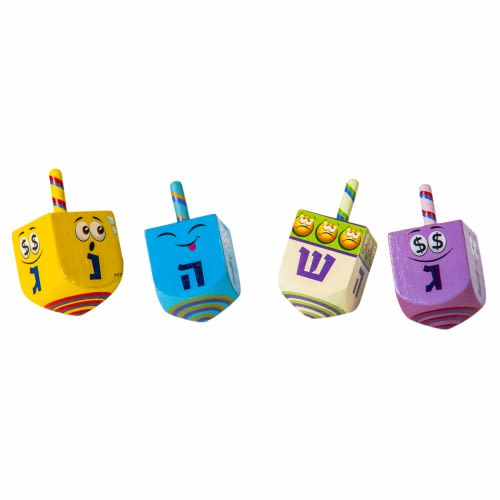
Shmini: The Sound of Silence
The lights twinkled off in the distant cold night as I stood under the “Emergency Room” sign. Ambulances would rumble up from time to time...

The lights twinkled off in the distant cold night as I stood under the “Emergency Room” sign. Ambulances would rumble up from time to time, but for the most part I was alone. It was the longest Shabbat evening of my life. I stood in silence; words had no place here. My nerves were shaken. Standing behind a large trailer parked forlornly in the parking lot, I finally broke down in tears.
An hour earlier, the woman who would become my kallah (fiancé), and two of her friends were hit by a car as they walked to shul. Thank God, today all three girls are fine. I guess if, God forbid, something awful like that happens, the best place for it to occur is outside a shul. Once those inside caught word of what had happened, it was as if we had an entire emergency room staff at our disposal!
This experience brought a startling reality to light. Until this point in my life, I was sure that as an “upstanding Jew," God would make sure my family and loved ones would be spared from such pain. Yet, as I surveyed the scene I remember realizing, “Things like this do happen.” Trauma is real. Suddenly on the verge of a theological crisis, and scared out of my wits, the experience seemed significant beyond words.
In Parshat Shemini, Aharon's (Aaron's)sons, Nadav and Avihu, were consumed by a heavenly fire. They brought an “alien fire” and incense into the Holy of Holies when they had no right to be there. They did not consult Aharon and Moshe (Moses) before entering the most sacred space on Earth. As a result, they were executed immediately by the Almighty. Following this situation, “Moshe said to Aharon: Of this did God speak, saying, “I will be sanctified through those who are close to Me, and I will be honored before the entire people”; and Aharon fell silent.” (Vayikra 10:3).”
The shocking death of Nadav and Avihu demonstrates that no one is “above the law.” The more righteous an individual, the more is expected from him and the greater the consequences of his sins. Nadav and Avihu were Torah royalty; their father was the Kohen Gadol, the High Priest. Rashi comments (Zevachim 115B) that God expects more of our leaders. One must rule over himself before he can rule over the Jewish people.
Nadav and Avihu’s deaths teach us that even the greatest human beings are nothing compared to the Almighty. We must never think that anyone is too great for Divine justice. Nadav and Avihu were sacrificed to teach the Jewish people the correct way to interact with the Almighty. In the same way that soldiers are heroes because of their willingness to sacrifice for their country, those who died so that we may become better Jews are worthy of even more honor. For this reason God said, “I will be sanctified through those who are close to Me, and I will be honored before the entire people.”
The way Aharon reacted to the death of his children also gives us an amazing insight into the Jewish perspective on life. The Ramban tells us that Aharon cried bitterly, as any parent would, when he learned of his sons' fate. Yet, after speaking with Moshe, Aharon was silent. Seforno explains that Aharon was silent because he found comfort in the knowledge that his sons had died to sanctify God’s name. Rashi explains that in Aharon’s ability to accept a Divine decree in silence, he was rewarded with a special mitzvah to abstain from intoxicants while serving the Almighty (to safeguard future Kohanim from the carelessness exhibited by Aharon’s sons).
Blind faith does not come easily to the Jewish people. When faced with hardship, we tend to challenge with questions, by making a scene, or by fighting back. When we experience tragedy, God forbid, we naturally turn to prayer and beseech the Almighty to help us and to get us through the rough times. Is the Torah teaching us to blindly and silently accept life as it comes? After all, when the Ramban tells us that Aharon initially cried and was silent only after Moshe assured him his children's death had sanctified God's name, he is teaching us that Aharon’s silence was not out of shock. Rather, his silence was a personal decision.
In our society, we find it necessary to explain and rationalize everything that occurs. From the moment the horrors began to unfold on September 11th, 2001, every newspaper in the country began spewing forth words; eyewitness reports, breaking news coverage, and editorials. After the smoke began to settle, people began to point fingers. It was America’s fault. It was Afghanistan’s fault. It was the Jews’ fault (that one has to be it). No one would accept that these types of things happen, or that the events of that sunny September morning were part of a greater overall plan. By analyzing and interpreting, by blaming and screaming, a nation was able to cope. No one was silent long enough to contemplate the real implications of what had happened, or the violence that was about to occur.
There is no doubt that, like the Holocaust, events that defy words oftentimes arouse men to point their fingers at the Almighty. Suddenly secularists, liberals and intellectuals cast off their atheism and find God at fault for their problems. Surely, if they can’t understand the pain in the world as a scientific or political problem, it’s God’s fault. When life goes well, who needs God (God forbid), but when troubles hit, He’s there to blame.
Our rabbis use a parable to explain how we often relate to the Divine.
A man lent his friend silver candlesticks. When the friend returned them, he also gave the lender a third, smaller, candlestick. When the lender inquired about its origin, his friend said simply, “the candlesticks had a baby.” Skeptically, the man took all three silver candlesticks. Next week, the friend returned and borrowed an expensive china plate. After a few days, he returned the original plate along an equally expensive, yet smaller china plate. “Mazel Tov! Your plate had a baby!” Joyfully, the lender took both plates. His friend then returned a few days later and borrowed a priceless goblet covered with jewels. Naturally, the first man was only too anxious to lend this costly piece. Days and weeks went by, though, and the friend did not return. One day, the man happened upon his friend, and inquired about the goblet. The friend said, “Oh, I’m sorry to tell you but your goblet passed away.” The lender was infuriated. “That’s impossible!” he cried. “A goblet can’t die!”
All too often, we accept our blessings with no recognition of their Divinity, and only take exception when our lives take a turn in a way we least expected.
When Moshe told Aharon that his children's death had sanctified God's name, he did not explain the details of how or why. This is in keeping with a fundamentally Jewish viewpoint. We believe that everything that occurs in this world is part of a bigger plan. From epic wars to a drop of dew falling from a leaf, every single minute action fits in God’s overall plan of revealing Himself to the world. Very often though, this revelation is not entirely apparent or comprehensible to us. As mere mortals, that which happens in everyday life often defies our understanding. Sometimes it takes us years to understand how one event plays into the pages of history, while at other times we cannot comprehend it at all. We know that God runs the world for our benefit, yet we deal with tragedy.
To expect the Almighty to reveal everything to us is foolish and immature. How could we expect a toddler to understand the wisdom of his parents? How could we, physical, limited beings expect to comprehend the wisdom of God? Yet this lack of understanding does not chip away at our faith. In a healthy home, we can trust that parents run their house in keeping with the child’s best interest because we know a parent would do anything for his child’s well being. This truth does not change even if, at times, what is in a child’s best interest is that which is most painful to him, like taking a bath, eating broccoli, or going to the doctor. In the same way, Aharon did not understand why his children had to die, nor did it dull the horrific pain he must have felt. He was comforted when Moshe spoke to him about the bigger purpose of his sons’ deaths and reaffirmed his understanding that God runs the world. Yet sometimes, things are simply too big for words. We are just people. There is a limit to how much we can understand.
Reb Natan, Rebbe Nachman’s main disciple teaches, “How can one have true knowledge of a life that is constantly evolving, that changes so rapidly and sometimes in such surprising ways? To question oneself constantly, to confess one’s limitations, to sincerely admit that one does not know, that is the answer. A person who can recognize his limitation has accomplished true rectification, provided though, that such recognition does not turn to defeatism. One should confess one’s ignorance and continue to search, to place oneself completely in God’s hands" (Courage!).
Often, the most difficult thing to do in life is let go. We focus on creating the future. From day one, we strive to control nature and to take the reigns of destiny. Oftentimes though, that which we seek is ever alluding. Life, in the long run, is not in our hands. The best we can do is strive to be the best Jews we can be. That is our job in this world.
We must trust in the Almighty, and accept the realities of the world, even when they are difficult beyond words. We should strive to view both life’s blessings and challenges as expressions of His goodness. By letting go of the foolish notion that we can explain and understand all that goes on around us, are we able to release ourselves from falsehood. Only when we release our grip from the edge of the pool can we learn to swim. Aharon taught us that it takes simplicity to be a great Jew. It takes simplicity to pursue our mission in life, to work on ourselves continually, and to trust that the Almighty will give us what is best. Words are often overrated;, good deeds and trust in God is what makes us worthy of His blessings. We must strive to seek out His love in our lives and to reciprocate though our actions. May this bring about unity and peace amongst all His creation.










Tell us what you think!
Thank you for your comment!
It will be published after approval by the Editor.